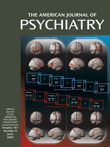Association of Utilization Management and Treatment Plan Modifications Among Practicing U.S. Psychiatrists
Abstract
OBJECTIVE: This study examined the relationship between utilization management techniques and psychiatrists’ treatment plan modifications. METHOD: Nationally representative data on 1,843 patients treated by 615 psychiatrists participating in the American Psychiatric Institute for Research and Education’s Practice Research Network were used to examine the demographic and clinical characteristics of patients whose care was subjected to utilization management and to assess the association between utilization management and psychiatrists’ treatment plan modifications. RESULTS: Approximately half of all patients had treatment that was subject to utilization management (52.6%). For the patients whose treatment was not subject to utilization management, 15.5% had their treatment plan changed compared to the 31.5% who were subject to utilization management. Overall, after adjustment for differences in patients, settings, and psychiatrist characteristics, the patients subject to utilization management were 2.6 times more likely to have their treatment changed than the patients who were not subject to utilization management. These patients were 3.7 times more likely to have their type of treatment changed and 2.3 times more likely to have their frequency or number of visits changed. Psychiatrists in individual practice settings and those with nonsalaried income sources were more likely to modify treatment decisions for their patients when subject to utilization management. CONCLUSIONS: The presence of utilization management is highly associated with changes in psychiatrists’ treatment decisions. When compared to evidence-based treatment recommendations, these changes seem likely to result in less than optimal care.



